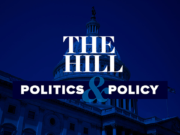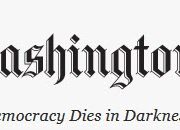America enters a generational Supreme Court nomination battle divided. But one aspect of the fight over nominee Judge Brett Kavanaugh shows our democracy is as vibrant as ever: the effort to persuade Americans reflects the unique speech bazaar the First Amendment grants us. The coming rhetoric may get nasty but it’s a gift bestowed to us by ancestors with the forethought to enshrine our most important right.
Since the late 1980s, getting a nominee confirmed to the Supreme Court has required a vast public-relations and lobbying effort. The politics of confirming a Supreme Court nominee are now as sophisticated as any other high-level advocacy campaign. Anticipating Justice Kennedy’s retirement, groups long ago purchased websites and made plans and budgets.
Welcome spending that educates the public
The casual observer may wince at the resources spent on Kavanaugh’s confirmation, but it’s actually a rather small amount. The pro-Kavanaugh Judicial Crisis Network, for instance, says it plans to spend $10 million supporting the nominee. And the anti-Kavanaugh group Demand Justice has pledged to spend $5 million in opposition. This $15 million commitment — from the largest spenders in the fight — does not compare to the billions spent on federal election campaigns. And in a country of 320 million, where most Americans cannot name even a single Supreme Court justice, some spending to educate the public should be welcomed.
And what will all this money and reporting do? Advocates will try to nudge a largely indifferent public toward a hard stance. Groups will spend money on research, traditional and digital advertising, rallies and protests. In other words, it will all pay for some form of protected speech. And unique to America, it is the organizations and their donors that decide how much speech is “enough.”
To be sure, the battle over Judge Kavanaugh resembles a controversy over policy more than a campaign for elected office. He won’t solicit campaign contributions. If confirmed, he has a lifetime appointment. Thus, there is no danger of corruption or even the appearance of it, even if assertions to the contrary are bound to arise in the ugly politics of confirmation
Cooler heads will recognize that groups on both sides of the Kavanaugh fight are acting based on his past opinions and judicial philosophy. After all, if judges did the bidding of the highest spender during their confirmation, both sides would compete to spend the most supporting each judge. Instead, they evaluate a judge’s established views and either support or oppose the nominee.
Money has little influence on politics
Believe it or not, evidence suggests campaign spending has the same limited effect. Political scientists have repeatedly found no direct link between money spent in political campaigns and policy outcomes. As scholar Jeffery Milyo wrote in 2015: “[T]he dirty secret of American politics is that this conventional wisdom [about donor influence] is not well-supported by scientific research. The last several decades of research suggest that money plays a limited and ambiguous role in our politics.”
What all this money sent to interest groups does do is inform the public. These voices join and compete with media, op-ed writers, paid flacks and everyday citizens on social media. No one garners a monopoly or even a hearing in the conversation without being clever and credible. And that’s how it should be.
Whatever the outcome of the Supreme Court fight, as the midterms approach so will handwringing over the supposed deleterious effects of big money on the political system. They should remember the lessons learned this summer.
David Keating is the president of the Institute for Free Speech, an organization dedicated to promoting and defending the political rights to free speech, press, assembly and petition guaranteed by the First Amendment.














